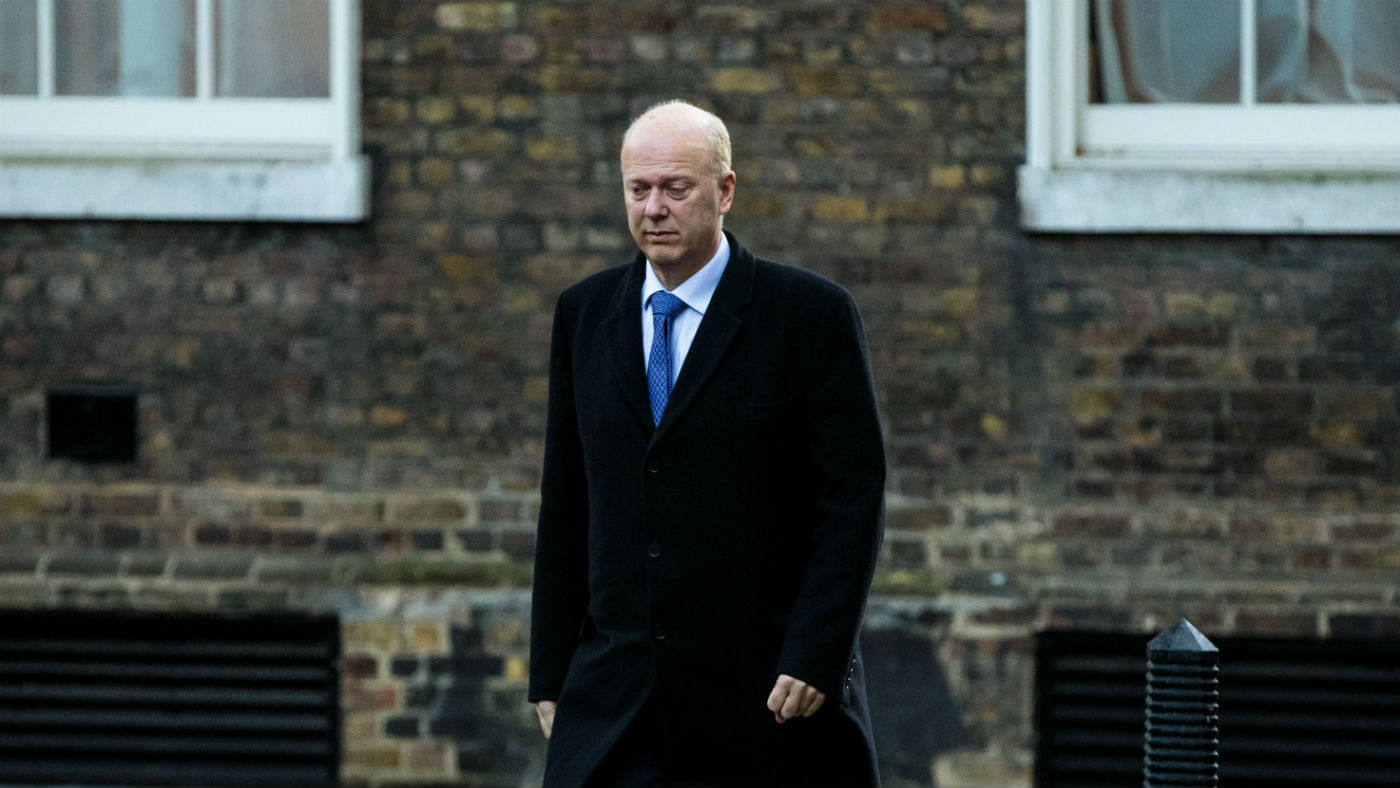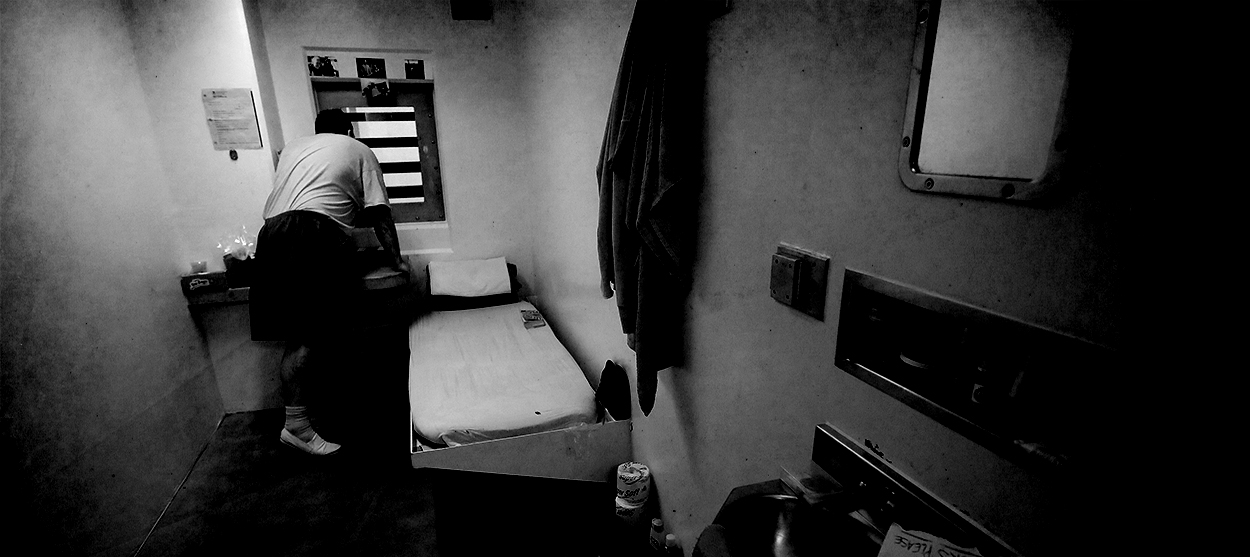Why everyone is talking about probation
Government announces reversal of controversial probation service reforms introduced by Chris Grayling just five years ago

A free daily email with the biggest news stories of the day – and the best features from TheWeek.com
You are now subscribed
Your newsletter sign-up was successful
Chris Grayling’s much-criticised privatisation of parts of probation services in England and Wales is to be reversed amid claims that the reforms have put the public at risk.
In 2014, then-justice secretary Grayling handed the supervision of low- and medium-risk cases to private companies, while the state continued to manage high-risk offenders.
But just five years later, his successor David Gauke has announced that the public National Probation Service (NPS) will resume monitoring of low and medium-risk from December 2020.
The Week
Escape your echo chamber. Get the facts behind the news, plus analysis from multiple perspectives.

Sign up for The Week's Free Newsletters
From our morning news briefing to a weekly Good News Newsletter, get the best of The Week delivered directly to your inbox.
From our morning news briefing to a weekly Good News Newsletter, get the best of The Week delivered directly to your inbox.
The aim of Grayling’s Transforming Rehabilitation programme was “to reduce reoffending and save money”, The Independent reports. However, The Guardian revealed last year that the number of offenders in England and Wales charged with serious offences while being monitored by private probation firms had increased significantly.
Announcing the renationalisation of the service, Gauke said he wanted “a smarter justice system that reduces repeat crime” by “providing robust community alternatives to ineffective short prison sentences”.
What happened?
The probation services in England and Wales currently monitor more than 250,000 people, including “inmates preparing to leave jail, ex-prisoners living in the community, and people serving community or suspended sentences”, says The Daily Telegraph.
A free daily email with the biggest news stories of the day – and the best features from TheWeek.com
Grayling took the decision to hand the probation monitoring of lower-risk offenders to eight private firms that run 21 so-called “community rehabilitation companies”.
The BBC reports that he went ahead with the plan despite receiving “numerous warnings about the considerable risks of splitting probation services between different providers and introducing a method of payment-by-results”.
The move has been heavily criticised by MPs, charities and watchdogs, with HM Chief Inspector of Probation Dame Glenys Stacey calling the model of part-privatisation “irredeemably flawed”.
In March, the National Audit Office said that problems with the part-privatisation had cost taxpayers almost £500m. The public spending watchdog also reported that the number of offenders returning to prison for breaching their licence conditions had “skyrocketed”, and revealed that more than 200 criminals under privatised probation had been charged with murder.
A report by probation inspector Stacey also found that the overhaul had led to tens of thousands of offenders – up to 40% of the total – being supervised through telephone calls every six weeks rather than face-to-face meetings.
This week, Justice Secretary Gauke told BBC Radio 4’s Today programme that the Tory government had “run into difficulties” with probation services for ”complex reasons”, including that “the case loads have not been what was anticipated”.
And the response to Gauke’s announcement?
Chief probation inspector Stacey said she was “delighted” by the reversal of the part-privatisation, adding that the cancellation “puts the focus firmly on improving the quality of probation services”.
“Hard-pressed probation professionals now face yet more change, but I anticipate they will be in good heart. It is a chance to restore their professionalism,” she continued.
But Janine McDowell, CEO of Sodexo Justice Services, claimed the “more fragmented system” arising from the contract cancellation “will cause confusion as offenders are passed between various organisations”.
Meanwhile, the BBC says that the renationalisation “will be seen as an admission by the Government that Chris Grayling’s flagship reforms have failed”.
The Times agrees that the reversal is “another blow to the reputation” of the now-transport secretary.
What next?
Gauke is aiming to bring all offender management under the NPS by spring 2021, but will still provide up to £280m a year for probation “interventions” from the private and voluntary sectors, reports ITV News.
According to The Guardian, the new system will result in 11 new probation regions in England and Wales run by the NPS. Each will have an “innovation partner”, either a private firm, charity or NGO, which will provide some rehabilitation services.
Ian Lawrence, general secretary of the Napo union for probation officers, has welcomed the overhaul, but added: “We are obviously disappointed that there is an intention for some probation work to remain in the private sector.”
-
 Switzerland could vote to cap its population
Switzerland could vote to cap its populationUnder the Radar Swiss People’s Party proposes referendum on radical anti-immigration measure to limit residents to 10 million
-
 Political cartoons for February 15
Political cartoons for February 15Cartoons Sunday's political cartoons include political ventriloquism, Europe in the middle, and more
-
 The broken water companies failing England and Wales
The broken water companies failing England and WalesExplainer With rising bills, deteriorating river health and a lack of investment, regulators face an uphill battle to stabilise the industry
-
 The dangerous vigilantism that fueled Jan. 6
The dangerous vigilantism that fueled Jan. 6Talking Point
-
 The real reason the Pentagon is sounding the alarm over China's hypersonic missile
The real reason the Pentagon is sounding the alarm over China's hypersonic missileTalking Point
-
 China's ominous incursions over Taiwan
China's ominous incursions over TaiwanTalking Point
-
 Is Bibi-ism possible without Bibi?
Is Bibi-ism possible without Bibi?Talking Point
-
 The Derek Chauvin solitary confinement predicament
The Derek Chauvin solitary confinement predicamentfeature
-
 Keith Ellison's strategy in the Derek Chauvin trial paid off
Keith Ellison's strategy in the Derek Chauvin trial paid offfeature
-
 Injustice for everyone?
Injustice for everyone?feature
-
 If Andrew Cuomo won't resign, he must be impeached
If Andrew Cuomo won't resign, he must be impeachedfeature